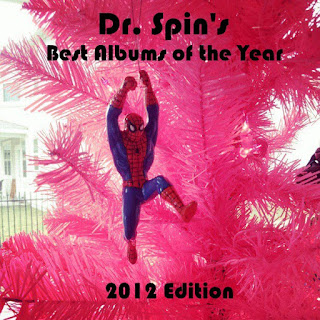I admit to having something of a sugar addiction. Although I can generally manage on a regular basis, the holiday season is a bit more difficult to navigate. In addition, this year I have been trying to shield my
daughter from the onslaught of refined sugar as it makes the rounds My grandmother, however, her great-grandmother, has a more insidious agenda.
I have noticed that when we eat as an extended family, she often exerts a not-so-subtle pressure to make sure that the
Little One gets more than her share of desert when it is available. Ween has always shown her love through food, so I get that she is being affectionate in her own way, but sometimes I feel like my efforts to
build my daughter out of wholesome foods are ignored.
For example, a couple of weeks ago, my extended family went to a Christmas shopping event at Dillard’s. Several employees were making rounds with hors d’oeuvres plates, one of which was piled high with cookies. Cookies, in particular, are something of a “gateway sweet” for me, and I had been doing a pretty good job of dodging that particular server. Towards the end of the evening, however, my resolve began to wear down and when I was cornered, I decided one cookie wouldn’t destroy my efforts to stay fit.
My grandmother, however, was with me, and her craftiness knows no bounds. She picked one out for herself, but she was also very concerned that the Little One would miss out, so she also grabbed a second one for her. I really didn’t want my daughter to eat a whole cookie at 9 pm, but it wasn’t up for debate. My grandmother proceeded to break off chunks, gleefully watching them disappear into my daughter’s delighted face.
Disgruntled, I took over. I did not want to put a damper on my grandmother, but a whole cookie seemed like just too much. I started to sneak bites to minimize the damage. When it was gone, my grandmother offered me the other half of hers. I was in the throes of the insulin rush by this time, so I could hardly turn it down. In the end, I had inadvertently more than doubled my cookie input. My grandmother had gotten both of us!
I’m still not convinced that this wasn’t her master plan in the first place.
Anyhow, you are probably not here to read a cautionary tounge-in-cheek tale about my dietary downward spiral - at least not entirely. You're here for the top ten! Looking back on
last year's list, I think that
this year is a bit more honest representation of my listening habits. To me, these albums represent the experiences and changes in 2012. Plus, its some dang good music that, in some cases, you might not have heard of elsewhere.
10.
My Bloody Valentine -
Loveless: After several years in an irregular orbit, this album finally clicked for me. It’s actually a beautiful, emotionally charged album that changed the way I listen to a lot of
contemporary music.
9.
Oneohtrix Point Never –
Replica: It doesn’t make sense that
Replica is as musically affective as it is. However, its choppy, post-apocalyptic atmospheres capture an alienated sentimentalism that kept it in rotation all year long.
8.
The Mars Volta –
Noctourniquet: While the choice might be confusing to the public, I would love to see some brave contestant sing a song from this album on
The Voice. If they were able to capture the arresting melodicism with the same intensity as
Cedric, it could really bring the house down.
7.
Grizzly Bear –
Shields:
Shields is a bit of a late entry to be placed so high on the list, but I have increasingly found myself drawn into its orbit. It serves nearly all purposes: it is singable, textured, intelligent, artistic, and vibrantly executed.
6.
Astra -
The Black Chord: Sure, this is a bit of a guilty pleasure, but Astra is so good at what they do that I really don’t feel that guilty. They miraculously reinvent the progressive and psychedelic sounds of the 70s without directly copying any one group.
5.
Now, Now –
Threads: Great songwriting and energetic performances underpin this album.
Threads is a hard one to take out of the player.
4. A
nais Mitchell –
Hadestown: Mitchell’s folk opera epitomizes layered meaning. No matter how many times I listen to it, I feel like there is more to appreciate.
3.
Field Music –
Plumb: This album seems to bend the laws of space in time. Its short running length belies its incredible depth, which surpasses that of many longer, more involved librettos.
2.
Death Grips -
The Money Store: Not since
Rage Against the Machine has an album navigated the extremes of fury and intelligence so effectively. In a side-by-side comparison,
The Money Store has made many other albums from this year sound kind of dumb.
1.
Rush -
Clockwork Angels: If you have
followed the blog at all, this is a no-brainer. Despite my adoration of all things Rush, I believe that is nothing short of phenomenal that this band is able to release such a strong, viable record at this phase of their career.
If you missed the first half, you should
check it out here.
Thanks to everyone who reads the blog, especially those who have made suggestions. Keep reading and let me know that you are out there! More to come soon.






















